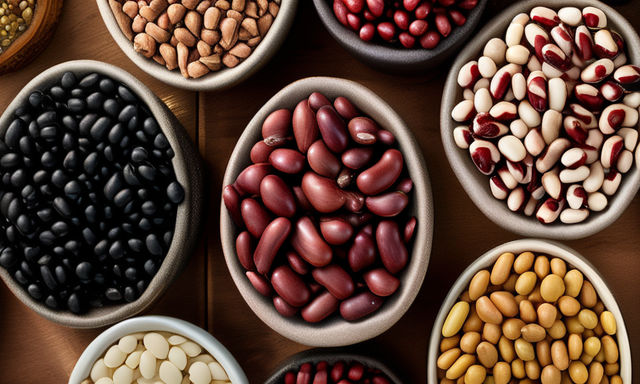Benefits of Beans Video
Beans, often hailed as a staple food in various cultures around the globe, are much more than just a basic ingredient. These versatile legumes pack a nutritional punch that can contribute significantly to a balanced diet, offering a plethora of health benefits that cater to a wide array of dietary needs. From their heart-healthy properties to their role in weight management and beyond, beans are a nutritional powerhouse deserving of a closer look.
Nutritional Profile of Beans
Beans are packed with essential nutrients that make them an invaluable addition to any diet:
- 1. High in Protein: Beans are an excellent source of plant-based protein, making them particularly important in vegetarian and vegan diets.
- 2. Rich in Fiber: High in both soluble and insoluble fiber, beans can aid digestion, promote gut health, and help regulate blood sugar levels.
- 3. Low in Fat: Most beans are low in fat and contain no cholesterol, contributing to heart health.
- 4. Vitamins and Minerals: Beans are a good source of various vitamins and minerals, including iron, magnesium, potassium, and folate, supporting overall bodily functions.
Health Benefits of Beans
1. Heart Health
The soluble fiber in beans can help lower blood cholesterol levels, reducing the risk of heart disease. Beans also contain heart-healthy nutrients like potassium and magnesium, which can improve cardiovascular health by maintaining healthy blood pressure levels.
2. Diabetes Management
Beans have a low glycemic index, meaning they cause a slower rise in blood sugar levels compared to high-carb foods. This makes beans an excellent dietary choice for people managing diabetes, as they help regulate blood sugar levels and provide sustained energy.
3. Weight Management
Thanks to their high fiber and protein content, beans are incredibly satiating, which can help control appetite and reduce overall calorie intake, aiding in weight management and obesity prevention.
4. Digestive Health
The fiber in beans not only helps maintain bowel regularity but also acts as a prebiotic, feeding the beneficial bacteria in the gut and promoting a healthy digestive system.

Culinary Versatility
Beans are incredibly versatile and can be incorporated into a wide array of dishes, making them a staple in global cuisines:
- - Salads and Soups: Add beans to salads for a protein boost or use them as a hearty base for soups and stews.
- - Main Dishes: Beans can be the main ingredient in dishes like chili, curries, and casseroles, providing substance and flavor.
- - Snacks and Sides: Roasted chickpeas, hummus, and bean-based dips are nutritious snack options, while beans can also serve as a nutritious side dish to complement any meal.
Conclusion
The benefits of beans extend far beyond their nutritional value, contributing to heart health, weight management, digestive wellness, and glycemic control. Their affordability, sustainability, and culinary versatility further elevate beans to a must-have in any health-conscious diet. Embracing beans as a regular part of your dietary regimen can lead to significant health improvements, underscoring the adage that good things indeed come in small packages.
Disclaimer: This article is for informational purposes only and does not constitute medical advice. Always consult with a healthcare professional before making significant changes to your diet, especially if you have specific health conditions or dietary needs.Ready to level-up?
Create meal plans 10x faster, follow up with your clients through our mobile app, and never struggle with meal planning or recipe management again.